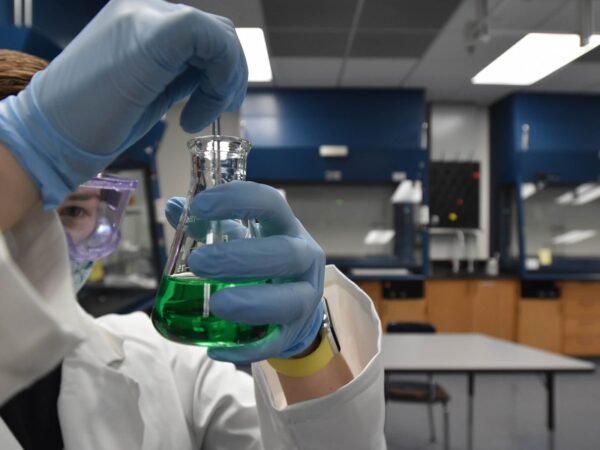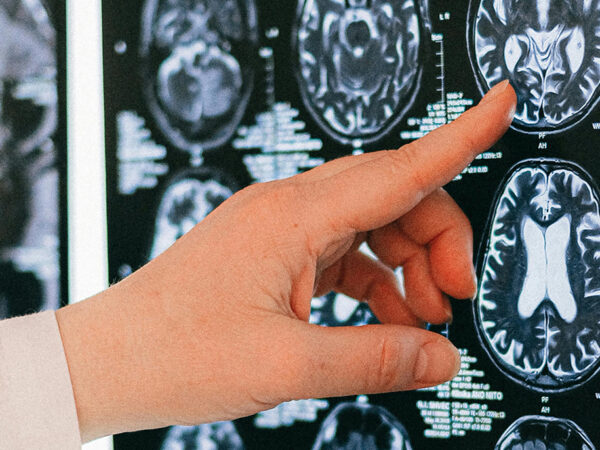Bachelor of Science in Data ScienceSchool of Arts and Sciences
The Numbers Tell a Story
Delve into data science at a liberal arts college and explore how ‘big data’ impacts every industry. Learn how to analyze data and transform the world by leveraging the power of information. The Bachelor of Science in Data Science program integrates computer science, mathematics, and project management, equipping students with practical knowledge of data analysis methods and techniques. Making informed decisions in any industry begins with the ability to think critically about the construction and implications of data analysis and models.
Data Science is a rapidly evolving field that offers students access to one of the fastest growing career sectors in Wisconsin and across the nation. If you enjoy problem solving and making evidence-based decisions, this career path will open many doors. Experts in this field work in a wide range of industries, including business and economics, information technology, biological and environmental research, genomics, health sciences, meteorology, and physics. Edgewood College’s program prepares students to acquire, manage, process, model, mine, and present data, providing them with knowledge and skills that can lead to a wide variety of careers in business, industry, education, government, or the non-profit sector.
Madison, WI
On-campus
120
August 25, 2025
Careers within Data Science
$108,020
Average annual salary pay for a Data Scientist
A Bachelor of Science in Data Science prepares you for a variety of career paths. Those marked with an asterisk (*) require graduate-level degree.
- Actuary
- Business Analyst
- Business Intelligence
- Data Architect
- Data Analyst
- Mathematician*
- Operations Analyst
- Quantitative Analyst
- Statistician*
Student Spotlight

Casey Konkol ‘24
Individualized major, a second major in Broad Fields Natural Sciences, and a concentration in Physics
“I loved how the Data Science degree program was taught by experienced faculty and professionals from the field. I can take my skills in data analysis, probability, and statistics, and apply them to my future work in higher education. The program’s blend of classroom learning, internships, capstone projects, and research gave me well-rounded experiences and filled my resume with diverse, valuable experiences.”
Featured Courses
Computer Science 270 – Approaches to Database Management
This course is a fun introduction to the different traditional and modern day approaches on database management using hands-on examples. Concepts of files, databases, data objects, and presentation of data in various formats are covered. Students learn the principles, techniques and tools needed to create a relational database application from scratch and apply them in a group project using open source tools such as MySQL and PHP. This course also familiarizes students with the technical hands-on knowledge of NoSQL databases using MongoDB and also explores the origins and characteristics that distinguish them from traditional relational database management systems.
Computer Science 305 – Introduction to Data Analytics
This course is intended to give students the grounding principles of data analysis. Students will be exposed to different frameworks of scientific interaction with the data and ways to reduce uncertainty in order to get better decision-making results.
Computer Science 315 – Introduction to Machine Learning
In this course students will get a foundation indifferent machine learning models and algorithms. Topics may include supervised and unsupervised learning, Bayesian decision theory, neural networks, stochastic methods and cluster analysis. Students will learn how these models may solve complex real-life problems such as data mining, autonomous navigation, speech recognition, robotic control, bioinformatics, image recognition, and many others.
Math 256 – Discrete Mathematics
This course introduces students interested in math or computer science to a level of abstraction and argumentation appropriate to those fields as well as providing some of the foundational mathematics and more importantly, ways of thinking needed for success in either field. In addition, the course provides students the opportunity to see connections between the two fields such as those between symbolic logic and digital logic circuits or between recurrence and induction. Topics include: logic, methods of proof, sequences, induction, recursion, set theory, functions, relations, counting, probability, graphs, trees, analysis of algorithm efficiency.
Experiences
All students are required to complete at least one internship when completing their degree. Often internships are the gateway to finding a full-time job, which many students end up getting even before they graduate.
Student Organization
Edgewood EmPowered
This organization is all about bringing ideas to life using the collective skills of its members. It is a creative space in which members can explore a multitude of mediums and skills such as web design, coding/programming, database management, digital art, and more!
The club also acts as a platform for developing growth and knowledge in the personal and professional career world associated with the computer sciences, as well as means to share inspiration and aspirations.
Faculty Spotlight

Atreyee Sinha
Associate Professor | Chair of the CIS Department
ASinha@edgewood.edu

Susan Hollingsworth
Associate Professor | Mathematics Department
SHollingsworth@edgewood.edu

Alexander Anderson
Lecturer | Computer & Information Science Department
avanderson@edgewood.edu

Ted Tranel
Lecturer
ttranel@edgewood.edu
Related Programs
-

On-campus
Bachelor of Science in Biology -

On-campus
Bachelor of Science in Business -

On-campus
Bachelor of Science in Chemistry
-

-

On-campus
Bachelor of Science in Mathematics -

On-campus
Bachelor of Science in Neuroscience